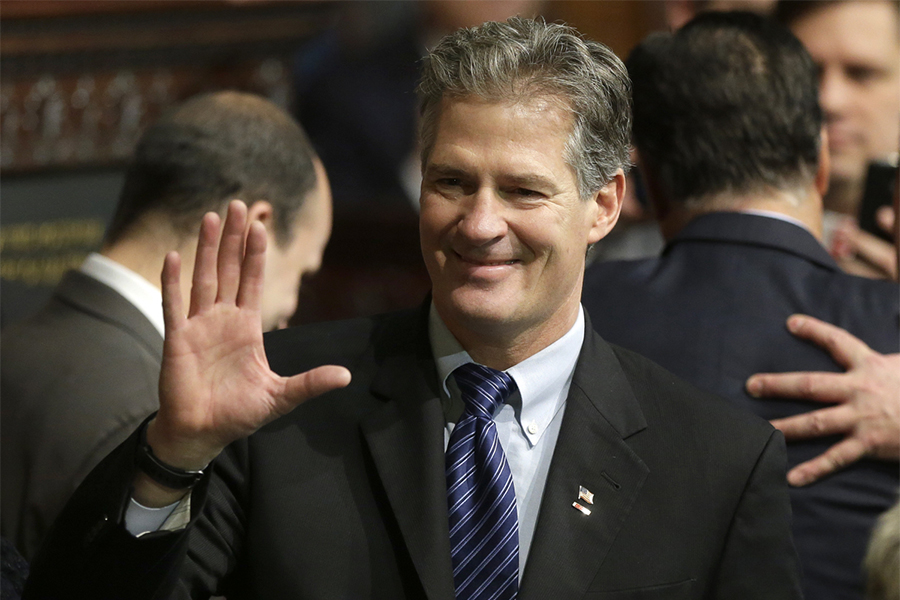Doug Jones Is Not Scott Brown
The Democrat's upset victory in conservative Alabama drew a lot of comparisons to Brown's surprise in Massachusetts.

Photo via AP/Steven Senne
Scott Brown, like that old pair of acid wash jeans still lurking in the depths of your closet and reminding you of past fashion flops, was trending on Twitter in Boston last night.
The former senator, who has managed to make an ambassadorship to New Zealand controversial, resurfaced as a tool of comparison following Democrat Doug Jones’s seemingly impossible upset of Republican Roy Moore in the Alabama special election. Brown’s 2010 election to fill Ted Kennedy’s Senate seat was, the pundits making the comparison professed, the last time such a shocking disruption of partisan norms hit the chamber.
The parallel, in a vacuum, is logical: One of the bluest states in America elected a Republican senator to finish out someone else’s term. And one of the reddest states in America elected a Democratic senator to finish out someone else’s term seven years later. Brown’s election complicated Democrats’ health care legislation, while Jones’ could do the same for today’s Republican tax bill. Jones and Brown, in pulling off such upsets, seem inevitably temporary—brief, electric shockwaves hurtling a state electorate into a short-lived identity crisis before unceremoniously ceding to the status quo of tribalism and being unseated come next election day.
Of course, there’s no guarantee Jones will lose (or even run) for the seat he now holds as Brown did to Sen. Elizabeth Warren in 2012. But, beyond the absence of the psychic vision that would allow us to see what will happen to Jones, another essential fact jettisons the comparison’s effectiveness: Moore is no Martha Coakley.
The man who lost the Republicans an Alabama Senate seat is a racist, homophobic disciple of birtherism who has been credibly accused of pedophilia. Coakley’s biggest foible was a purported lack of personability. Moore was twice removed from the bench of the Alabama Supreme Court for controversies. Coakley was, at the time of the election, the Attorney General of Massachusetts. Opposing the media was a pillar of Moore’s campaign. The Boston Globe endorsed Coakley.
Certainly, there are dozens of other policy, environmental, and strategic differences that form the gulf separating Moore and Coakley, but Jones and Brown are also far from twins. Though both men are fairly moderate, Brown was found to be one of the most liberal Republicans in the entire country, and he professed to be pro-choice, both facets that made him far more acceptable to Mass. voters. Jones, on the other hand, did not cede ground despite pressure during the election and held fast to liberal positions on abortion, civil rights, and the environment.
It might seem more challenging for Brown to take down a qualified Coakley than for Jones to beat a weak Moore. And yet, that Alabama voters pulled the lever for a man whose values on social issues mark a sharp departure from previous state leaders is vastly more noteworthy than Bay State voters picking a middle-of-the-road Republican. After all, does the name Charlie Baker ring a bell? Or Mitt Romney?
The Brown-Jones comparison is low-hanging fruit, and still recent enough history that everyone can remember how shocking it was. But there’s no huge healthcare reform package on the table right now, and Moore’s troubles largely overshadowed any substantive debate on the upcoming tax reform vote. If there’s something else to be drawn from Brown’s big victory, it might be how much people here don’t like it when someone says Red Sox players are Yankee fans.


